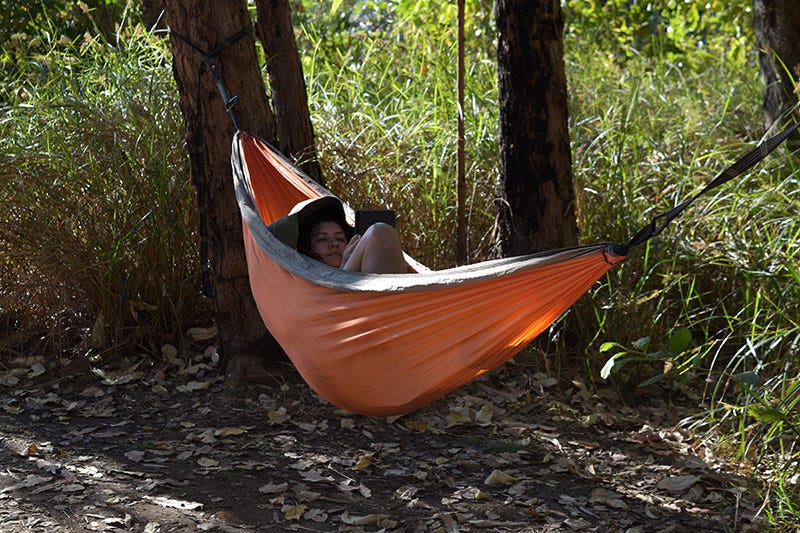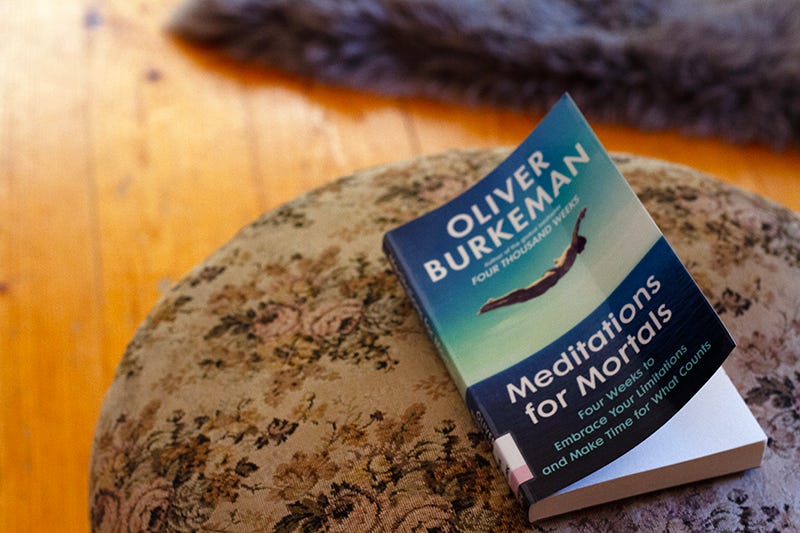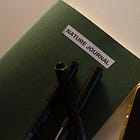For a time I rest in the grace of the world, and am free.
― Wendell Berry, The Peace of Wild Things
* * *
Why do we feel so guilty for resting?
This is a question I ask myself almost daily. Why do I feel so guilty for resting, when rest is fundamental to functioning well as a human being?
Last week’s post examines the engagement of hobbies you do for - shock, horror - fun, rather than money or skill building (to then earn more money).
Like rest, the pursuit of hobbies can be viewed as a ‘waste of time’.
How can you rest when the house isn’t clean?
How can you rest when dinner hasn’t been cooked, nor the grocery shopping even done?
The garden is a mess. An assignment is due imminently. The dog needs to be walked. The kids need to go to soccer practice/piano lessons/their friend’s 10th birthday party, for which you need to contribute a present and 25 iced cupcakes.
And so on, so forth.
Much like making time for hobbies, there isn’t really any radical way to produce more time for rest. It’s more about letting the things that don’t matter so much fall to the wayside, prioritising your health and dare I say, sanity in the process.
Resting should not be viewed as unproductive or time-wasting.
And it shouldn’t be prioritised simply so you can do more work.
Instead, it’s vital to our own well-being and I’d say, that of the planet around us.
It’s all a great unpicking
We’re raised essentially from childhood to believe that we need to be ‘productive’.
Our entire identity is wrapped up in the work we do ― from being routinely asked what we want to be ‘when we grow up’ (and prepped by the school system for this), to constantly, exhaustingly asked what we do as adults.
That is a boring question I simply refuse to answer these days with what I do to earn a living. Instead the questioner gets to hear about my hobbies, which usually sparks a far more interesting conversation. Try it.
A bit of personal background
Sometimes I’m unsure of how much to navel gaze in these posts, because I feel weird talking about myself (and yet she has a newsletter). Yet, I’d like you to know why and how I’ve landed in this place, as it may be helpful to you, somehow.
I spent my entire twenties essentially trying to ‘optimise’ my body... mostly for work. I was a shift worker at the time, working into the night or starting early morning, and obsessed with healthy eating and exercise. While eating well and moving your body are not inherently bad things, I felt like I was pursuing them for the wrong reasons; to do more, not to just be.
Plus, due to the erratic nature of my job’s roster, I often didn’t, or couldn’t sleep on my time off, whether it was day or night.
On top of this, I was desperate to get out of the industry I was in, to find a ‘normal’ job (ie with ‘normal’ working hours, whatever that means) that wouldn’t cost me my health. To do this… I worked even more.
I did ultimately manage to cultivate a skill set that enabled me to pivot, but man, I am still unpicking the damage here. It’s taken me another five years, at the age of 35, to realise I need to prioritise rest in my life.
Despite this, I think it’s safe to say, I have still had an exhausting year. Really, it’s been one of extreme highs and lows, which I’ll be unpacking for quite some time.
After feeling dangerously close to burnout as recently as October, I’ve really been prioritising rest these last few weeks, especially on the weekends, when it is a particular delight to embrace doing nothing ― it may seem like a radical idea, but if you work a 9-5 then these (measly) two days are actually meant to be for rest.
So basically, I’m saying that I know how hard it can be to rest, when it feels like everything in your life is screaming for attention. And why rest is, in times like this, more important than ever.
The research begins
Two books I’ve read recently have greatly informed my thinking on this.
The first is Oliver Burkeman’s Meditations for Mortals: Four Weeks to Embrace Your Limitations and Make Time for What Counts. Burkeman’s argument is that our time on earth is finite, and we should better prioritise the things that count. And that the list of things you ‘have to do’ is never going to be completed.
Once you make peace with this, you can get on with the things that matter, whatever that may mean to you.
The second book is Tricia Hersey’s manifesto, Rest is Resistance. Hersey is a Black woman, living in the USA and the founder of The Nap Ministry, an organisation that, as the title suggests, promotes group napping, of which she is delightfully the ‘Nap Bishop’ (she has a background in theology).
She sees rest as a radical fight against the demands capitalism makes on the body. Her second book We Will Rest!: The Art of Escape is coming out next year in Australia; one I’ve already requested from my library.
A few things I’ve been embracing lately to rest
The worry here is that rest becomes another thing on your endless ‘to-do’ list.
I struggle with good sleep hygiene for this very reason ― sure, according to conventional wellness advice, there’s plenty I could be doing to cultivate a solid night time routine, but that doesn’t necessarily mean it’s easily achievable.
So, here are a few things I’ve been doing, in order to invite more incidental rest into my life.
Making time for daydreaming
This has been one of the hardest acts to engage in, as we’re hardwired essentially from childhood not to daydream.
I was one of those kids who routinely got into trouble for staring out the window during class; complete BS, as I was cultivating a very important skill at the time, especially as a writer, which was letting my mind wander, wrapping its tendrils around thoughts and ideas, diving deeper, or resting into blank nothingness with delight and ease.
A wonderful practice for a curious child ― please don’t discourage it in your own!
So, it’s felt like a delicious rebellion to re-embrace daydreaming, and it truly is a tonic for the creative mind.
I find it easiest to daydream while walking ― I leave my phone at home and don’t listen to music or podcasts, keeping an ear out for bird calls instead (a gateway to nature connection, more on this soon).
If you’re struggling with disengaging from the trappings of productivity culture, this is a great way to trick yourself. It’s not time wasted as you’re ‘exercising’, or you’re walking your pet (dog, cat, bird, no judgement here), or perhaps heading to the shops for a pint of milk, or whatever excuse you want to use to trick the mind.
Lately, I’ve been experimenting with daydreaming in stillness, particularly while staring at the clouds. It’s blissful. If I lived in a place where you could see more than three of them, I’d do the same with the stars.

Spending time in nature
And we run now into this next point; nature and rest go hand in hand. Nature knows how and when it needs to rest, and surely the effects on the earth that we see come from us treating nature as a resource, rather than a living, breathing thing.
Get out in nature (backyards and nearby parks count!), find a spot to sit and let your mind wander.
Embracing unplanned napping
This is fast becoming one of my favourite things to do. Settling down with a good book in a comfy spot, beginning to read, feeling my eyes become heavy, putting the book down, grabbing a nearby blanket and snoozing for anywhere between 20 minutes to two hours.
It’s become a bit of a Saturday afternoon routine and I look forward to it all week.
Saying no more often
This one has taken me a long time to learn, but it’s slowly embedding itself.
Rather than getting to a day when an event is on, and feeling too tired to function, I try to evaluate how I’ll feel ahead of time.
For example, I recently got invited to a party I’d love to have gone too, but it’s the night before I leave for a retreat. Rather than get to that day and either bail out last minute, or force myself to go and stress out the entire time, I just said no from the get go.
Now instead, I get to enjoy a hopefully far more relaxed evening which will, to be honest, probably be consumed by last minute panicked packing. Yet, that’s fine! Now there’s space to do just that.
Not worrying too much about the state of the house
We’re never going to ‘get more time’ to do the things we want; rather we need to practice letting things that don’t matter so much fall to the wayside.
I’m not suggesting by any means that you live in filth, but your house probably doesn’t need to look magazine ready every day. It’s OK to not dust once a week, or vacuum all the time and the world isn’t going to end if you go to bed without doing the dishes or putting your freshly washed clothes away.
Going to odd events where napping is encouraged
The great thing about yoga is, it actively promotes rest (one of the reasons why savasana, the bit where you lie down at the end, is one of the most challenging poses).
My interest in rest has progressed to the point where I go to at least one yin class a week, with either an extended meditation session (yoga nidra is a favourite) or sound bath (where the practitioner plays sound bowls and other instruments, the vibrations of which are designed to relax and balance the body, and something I’d really love to learn how to do).
This may or may not be available to you depending on where you live, but at the very least there are yoga studios who run online yin classes ― and failing that, there are always apps.
The crux of it is: you can’t care for yourself, others, or the earth itself when you’re tired.
It’s not lazy to rest. It’s vital.
I’d love to hear your thoughts on rest and what you’re doing to disengage from grind culture, if you’re willing to share!
I’ll be back next week with another daft cleanse diary.
‘Til then, stay well and well-fed.
-Celine
Likes and comments have double benefits in being loved by the author and soothing the algorithm gods. 💚
You may also enjoy:
Some links in this missive will take you to YourBookstore.io. This very handy website allows you to shop and support independent Australian bookstores. Give your local some love, or request a copy from your nearest library.









It’s taken me many years not to feeling guilty about napping! Now I consider it essential to well-being! 😌 The title of your substack is most apt!
Love this article! Articulates many things that I've also realised but hardly every do :0